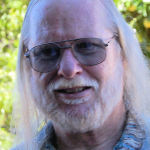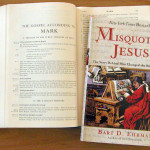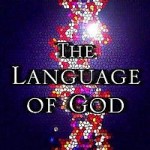What Science REALLY Says About the Soul (& Life After Death)
by Joe Heschmeyer
Filed under Science

If you’re not following the debates on all things scientific and religious, it’s easy to come away with the vague sense that science has “proven” that (a) the ‘mind’ is really just the brain, or (b) that there’s no such thing as life after death, or (c) there’s no such thing as an immaterial soul.
But what’s remarkable about each of those three things is how far the vague sense of what science probably says differs from what the actual science says. I was reminded of this recently because of an amazing review that the New York Academy of Sciences did with Sam Parnia MD, PhD, who has done some amazing research on so-called “near-death experiences.” One of the points that Parnia makes is that, from a medical standpoint, these aren’t “near-death.” These are post-death.
That is, the body is in a state in which normal bodily functions have ceased. Doctors will do what they can to try to restore those functions (in which case, they’ll declare that it was just “cardiac arrest” or something) but if they fail, the time of death will be back before they started, when the bodily functions ceased. Parnia’s point is fascinating, because it means that at least one of two things must be true: either (1) we’re bad at placing the time of death, or (2) science has now proven that it’s possible for certain people to come back from the dead.
Parnia actually wrote a book on this, interviewing people who had these “near-death” (or post-death) experiences, and some of them have memories from the time. It’s hard to know what to make of these memories, but it again seems to suggest that (1) we’re bad at placing the time of death [in which case, things like cardiac arrest need to be revisited], and/or (2) there’s now medical evidence of the continuation of consciousness after death.
But the real kicker is at the end of the interview, where Parnia almost casually points out that the whole materialist case against the soul is based on evidence that doesn’t actually exist:
Traditionally, researchers had proposed that mind or consciousness – our self – is produced from organized brain activity. However, nobody has ever been able to show how brain cells, which produce proteins, can generate something so different i.e. thoughts or consciousness. Interestingly, there has never been a plausible biological mechanism proposed to account for this.
Recently some researchers have started to raise the question that maybe your mind, your consciousness, your psyche, the thing that makes you, may not be produced by the brain. The brain might be acting more like an intermediary. It’s not a brand new idea. They have argued that we have no evidence to show how brain cells or connections of brain cells could produce your thoughts, mind or consciousness.
The fact that people seem to have full consciousness, with lucid well-structured thought processes and memory formation from a time when their brains are highly dysfunctional or even nonfunctional is perplexing and paradoxical.
I do agree that this raises the possibility that the entity we call the mind or consciousness may not be produced by the brain. It’s certainly possible that maybe there’s another layer of reality that we haven’t yet discovered that’s essentially beyond what we know of the brain, and which determines our reality.
So, I believe it is possible for consciousness to be an as of yet undiscovered scientific entity that may not necessarily be produced by synaptic activity in the brain.
So far, the response that I’ve seen from skeptics is that Parnia may be wrong, and that science may someday prove that the mind is really just the brain, and that humans are just matter. But what’s so fascinating to me is that this blind faith that atheism will one day be scientifically proven is so immune to the utter failure of the system to prove anything of the kind.
Related Posts
Note: Our goal is to cultivate serious and respectful dialogue. While it's OK to disagree—even encouraged!—any snarky, offensive, or off-topic comments will be deleted. Before commenting please read the Commenting Rules and Tips. If you're having trouble commenting, read the Commenting Instructions.












